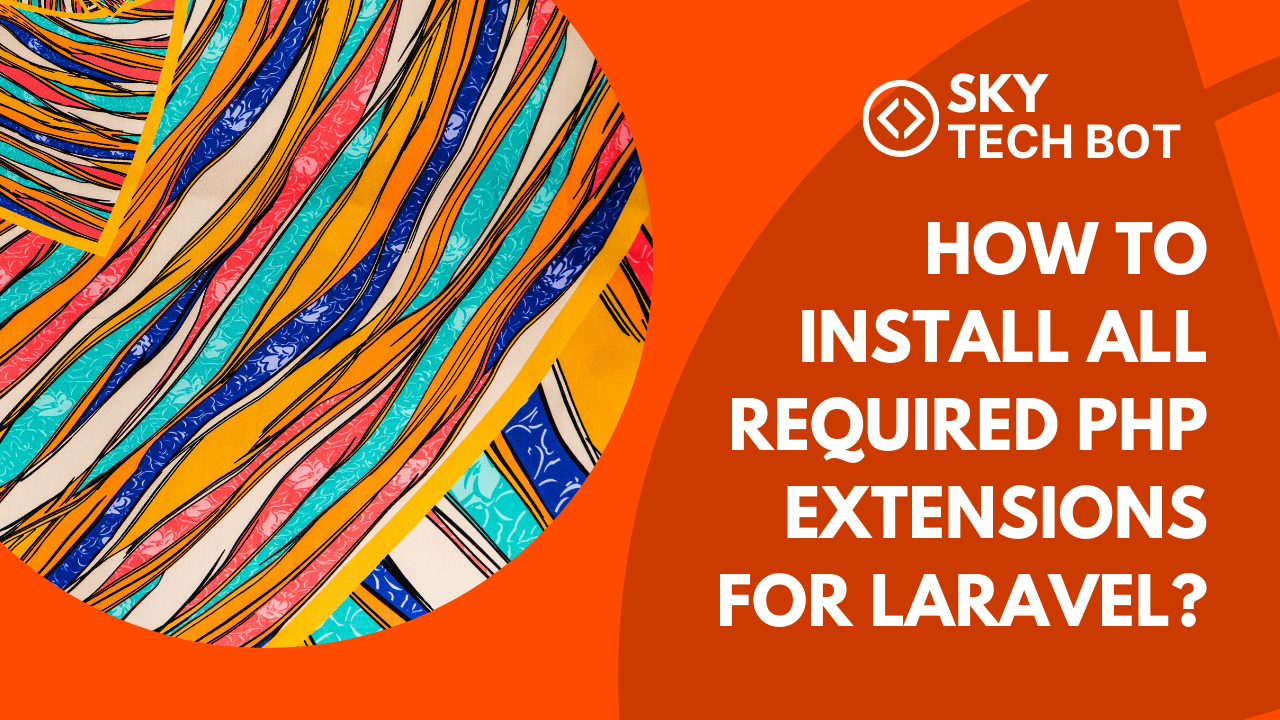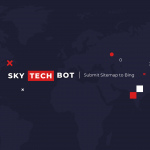Installing all required PHP extensions for Laravel is crucial for ensuring that your web application runs smoothly and efficiently. By doing so, you can avoid issues related to compatibility, security, and functionality, and optimize your application for better user experience and performance.
We will guide you through the process of installing all required PHP extensions for Laravel, including checking for existing extensions, installing missing extensions, verifying the installation, and troubleshooting common issues. By following these steps, you can ensure that your Laravel application runs flawlessly and meets all the requirements for building modern web applications.
Requirements: List all the required PHP extensions for Laravel and explain why each one is necessary
To run Laravel smoothly and efficiently, you need to make sure that all the required PHP extensions are installed on your server. Here is a list of the essential PHP extensions for Laravel and why each one is necessary:
- OpenSSL: OpenSSL is a library that provides cryptographic functions for secure communication. Laravel uses OpenSSL to encrypt and decrypt data, generate digital signatures, and verify the integrity of messages. Without OpenSSL, Laravel would be unable to secure sensitive data and protect against potential threats.
- PDO: PDO is a database abstraction layer that allows PHP applications to connect to various database systems using a consistent interface. Laravel uses PDO to perform database operations, such as executing SQL queries, retrieving data, and managing transactions. Without PDO, Laravel would be unable to communicate with databases, which are essential for most web applications.
- Mbstring: Mbstring is a PHP extension that provides multibyte string functions for working with non-ASCII characters. Laravel uses mbstring to handle strings in different character encodings, such as UTF-8, which is widely used in web applications. Without mbstring, Laravel would encounter issues with string manipulation, validation, and formatting, which can affect the functionality and appearance of the application.
- Tokenizer: Tokenizer is a PHP extension that provides a tokenizer engine for parsing PHP code into tokens. Laravel uses Tokenizer to parse and analyze PHP code, such as routing definitions and middleware configurations. Without Tokenizer, Laravel would be unable to interpret and execute PHP code, which is essential for most web applications.
- XML: XML is a markup language that allows the encoding of documents in a format that is both human-readable and machine-readable. Laravel uses XML to parse and generate XML documents, such as configuration files and responses to API requests. Without XML, Laravel would be unable to handle XML data, which is necessary for many web services and applications.
Checking for Existing Extensions: Explain how to check if the required extensions are already installed on your server.
Before you start installing the required PHP extensions for Laravel, it’s essential to check if they are already installed on your server. To check for existing extensions, you can use the following steps:
- Open your command-line interface (CLI) or terminal.
- Enter the following command to display a list of installed PHP extensions:
php -m- Look for the extensions required for Laravel, including OpenSSL, PDO, Mbstring, Tokenizer, and XML. If any of these extensions are missing, you need to install them before proceeding.
Alternatively, you can create a PHP script that displays the installed extensions and run it on your server. Here’s an example:
- Create a new file named
phpinfo.phpin your web server’s document root directory. - Add the following code to the file:
<?php
phpinfo();- Save the file and access it in your web browser by visiting
http://your-server-address/phpinfo.php. - Look for the extensions required for Laravel, including OpenSSL, PDO, Mbstring, Tokenizer, and XML, in the output. If any of these extensions are missing, you need to install them before proceeding.
By checking for existing extensions, you can save time and avoid installing extensions that are already installed on your server. If you find that any of the required extensions are missing, you can proceed with installing them by following the next sections of this blog.
Installing Missing Extensions: Provide a step-by-step guide on how to install missing PHP extensions using various methods such as package managers, PECL, or manually compiling the extensions.
There are several ways to install PHP extensions, including using package managers, PECL, or manually compiling the extensions. In this section, we will guide you through the process of installing missing PHP extensions using these methods.
Using Package Managers:
Most Linux distributions come with package managers that allow you to install and manage software packages easily. To install missing PHP extensions using a package manager, follow these steps:
For Ubuntu/Debian:
sudo apt-get update
sudo apt-get install php8.0-common php8.0-mysql php8.0-xml php8.0-xmlrpc php8.0-curl php8.0-gd php8.0-imagick php8.0-cli php8.0-dev php8.0-imap php8.0-mbstring php8.0-opcache php8.0-soap php8.0-zipFor CentOS/RHEL:
sudo yum install php-common php-mysqlnd php-xml php-xmlrpc php-curl php-gd php-imagick php-cli php-devel php-imap php-mbstring php-opcache php-soap php-zipUsing PECL:
PECL is a repository for PHP extensions that are not bundled with PHP. To install a PHP extension using PECL, follow these steps:
- Install PECL:
sudo apt-get install php-pear # For Ubuntu/Debian
sudo yum install php-pear # For CentOS/RHELInstalling Missing Extensions:
If you find that any of the required PHP extensions for Laravel are missing, you need to install them before you can proceed. There are several ways to install PHP extensions, including using package managers, PECL, or manually compiling the extensions. In this section, we will guide you through the process of installing missing PHP extensions using these methods.
- Using Package Managers:
Most Linux distributions come with package managers that allow you to install and manage software packages easily. To install missing PHP extensions using a package manager, follow these steps:
- For Ubuntu/Debian:
sql
sudo apt-get update
sudo apt-get install php8.0-common php8.0-mysql php8.0-xml php8.0-xmlrpc php8.0-curl php8.0-gd php8.0-imagick php8.0-cli php8.0-dev php8.0-imap php8.0-mbstring php8.0-opcache php8.0-soap php8.0-zip
- For CentOS/RHEL:
python
sudo yum install php-common php-mysqlnd php-xml php-xmlrpc php-curl php-gd php-imagick php-cli php-devel php-imap php-mbstring php-opcache php-soap php-zip
- Using PECL:
PECL is a repository for PHP extensions that are not bundled with PHP. To install a PHP extension using PECL, follow these steps:
- Install PECL:
csharp
sudo apt-get install php-pear # For Ubuntu/Debian
sudo yum install php-pear # For CentOS/RHEL
- Install the extension using PECL:
sudo pecl install extension-nameVerifying Installation: Explain how to verify that the required extensions have been installed correctly.
After installing the missing PHP extensions, you should check again to ensure that they are installed correctly by running the commands mentioned in the previous section. Once you have confirmed that all the required PHP extensions for Laravel are installed, you can proceed with configuring Laravel and building your web application. You can also check using Laravel’s Artisan Command.
Finally, you can also use Laravel’s Artisan command to check if the required extensions are installed. Run the following command in your Laravel project directory:
php artisan package:discoverThis command discovers all the installed packages and dependencies, including the required PHP extensions for Laravel. It will also display an error message if any of the required extensions are missing or not installed correctly.
Troubleshooting: Provide tips on how to troubleshoot common installation issues such as conflicting dependencies or version mismatches.
While installing the required PHP extensions for Laravel, you may encounter some common installation issues. Here are some tips to help you troubleshoot these issues:
- Conflicting Dependencies:
One common issue you may encounter is conflicting dependencies. This can happen when you have multiple PHP extensions that depend on different versions of the same library.
To troubleshoot this issue, you can try installing the conflicting extensions one at a time and check if any errors occur during the installation. You can also try using package managers that handle dependencies automatically, such as apt-get or yum.
- Version Mismatches:
Another common issue you may encounter is version mismatches. This can happen when you try to install an extension that requires a different PHP version than the one installed on your server.
To troubleshoot this issue, you can try installing the extension for the correct PHP version. You can also try updating your PHP version to match the requirements of the extension.
- Missing Dependencies:
You may also encounter issues where the installation of an extension fails due to missing dependencies. This can happen when an extension requires additional libraries that are not installed on your server.
To troubleshoot this issue, you can try installing the missing dependencies manually. You can also try using package managers that handle dependencies automatically, such as apt-get or yum.
- Manually Compiling Extensions:
If you choose to manually compile extensions, you may encounter issues such as missing libraries or incorrect configuration options. To troubleshoot these issues, you can try checking the extension’s documentation or the error messages displayed during the compilation process.
- Permission Issues:
Finally, you may encounter permission issues when installing PHP extensions. This can happen when you do not have sufficient permissions to install the extensions.
To troubleshoot this issue, you can try running the installation commands as the root user or using sudo. You can also try changing the permissions of the installation directory or files using chmod.
Conclusion:
In this article, we discussed the importance of installing all required PHP extensions for Laravel and provided a step-by-step guide on how to install them. We also provided tips on how to troubleshoot common installation issues that you may encounter.


